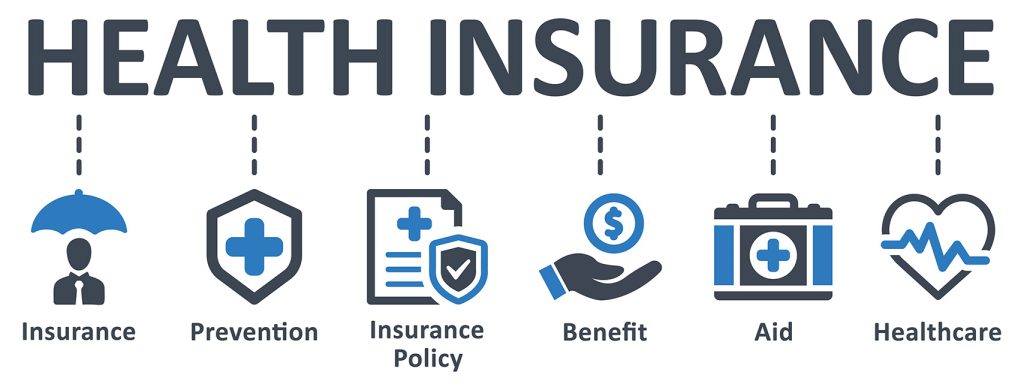Best health insurance plan in India-Tips to buy the best plan
Healthcare Costs Keep Rising in India. Indians pay a large sum of their medical expenses out-of-pocket which push them into poverty. A growing number of Indians are delaying or skipping important medical care because of the high cost of treatment. By allocating a modest amount every month to health insurance, you can shield your family from unforeseen and exorbitant medical expenses.
Do i really need a health insurance if i am Young?
A considerable portion of the populace remains oblivious to the importance of health insurance. “I am youthful and full of energy! Many individuals question the necessity of acquiring health insurance while they are in excellent health. Often, people display enthusiasm for insuring their vehicles, homes, and mobile phones, yet they tend to overlook safeguarding their own well-being. The truth is that an unexpected accident or illness can result in a significant financial burden due to the ensuing medical treatments and hospital costs. Consequently, numerous individuals find themselves in substantial debt.
The question arises: why should one consider obtaining health insurance? In India, healthcare expenses have been steadily rising in recent years, rendering it unaffordable for the average citizen. Over the past decade, the charges for medical services have surged two to threefold. Acquiring health insurance stands as one of the most pivotal financial decisions in life.
Health insurance & Life insurance
It’s crucial to differentiate between health insurance and life insurance; these two serve distinct purposes.
Life insurance extends financial support to your dependents in the event of your untimely demise or an accident. However, Health insurance protects you from unexpected, high medical expenses if you are covered.
Currently, there are diverse health insurance premium plans available, allowing for payment on a monthly, quarterly, semi-annual, annual, biennial, or triennial basis. Several companies offer attractive premium discounts if you commit to paying for two or more years in advance. Life can be unpredictable, and you can’t foresee when you or your loved ones back home may require medical treatment. With a robust insurance policy in place, such worries dissipate. When considering health insurance in India, it’s essential to be aware that there are various types of health insurance policies.
Therefore, it’s imperative to conduct thorough research and gain clarity on which policy aligns best with your needs or those of your family before making a choice. While health insurance is obligatory in many developed nations, policy structures in India exhibit differences. You can opt for either public or private health insurance providers, each having its unique features.”
Which health insurance policy is better, Public or Private?
Public insurance typically offers lower monthly premiums; however, the extent of coverage for various medical conditions is somewhat restricted. This means you’ll need to cover a certain percentage of your treatment costs out of pocket. Public insurance also occasionally provides government-sponsored offers, primarily targeting individuals with income or those in specific family categories.
On the other hand, private health insurance plans can provide comprehensive coverage for a wide range of medical expenses. Yet, the monthly premiums for such plans might be slightly higher. There’s often a bonus benefit if you don’t file any claims throughout a year.
Private health insurance can also extend its coverage to unexpected hospitalization expenses for a family member under the same policy. In India, there are presently 26 private health insurance companies in addition to five government health insurance providers, all regulated by the Insurance Regulatory and Development Authority of India (IRDAI).

Tips to choose the right health insurance plan
- How many days after starting the insurance plan will you be eligible for coverage? Most insurance policies provide coverage after a waiting period of 30 days, with accidental treatment covered from the policy’s start. The waiting period may vary depending on the policy.
- Is there an age limit for the insurance policy you intend to purchase?
- Before selecting a policy, it’s essential to verify if the healthcare providers you visit are within the network of the insurance company. In the event of an emergency that requires treatment in a non-network hospital, please ensure that the insurance will reimburse you or if there are specific conditions in the plan for such situations.
- Does the insurance cover outpatient (OPD) treatments? Many insurance plans include OPD coverage, but it’s important to distinguish between OPD and day care treatments. Some plans may offer day care treatment, but OPD does not cover it. Day care treatment involves procedures like radiation and dialysis that are completed within a single day in a hospital, while OPD involves visits to a doctor’s clinic for consultation and regular check-ups. Ensure your insurance plan covers your specific needs.
- Do you or any family members have a waiting period for pre-existing conditions at the initiation of the policy? Typically, waiting periods for pre-existing conditions in health insurance plans range from one to four years. These conditions may include arthritis, diabetes, high blood pressure, thyroid issues, ENT disorders, hernia, osteoporosis, joint repair surgery, cataracts, etc. It’s important to be aware that these conditions won’t be covered during the waiting period.
- There is a fixed waiting period for any illnesses that may develop after the insurance policy’s commencement. It’s advisable to thoroughly examine various plans before making a selection.
- Will the insurance cover pregnancy or expenses have related to the prenatal, delivery, and postnatal stages?
- Which critical illnesses are covered by the insurance, and are there any waiting periods for these illnesses? Examples of covered critical illnesses may include cancer, hepatitis, heart attack, coronary artery disease, stroke, encephalitis, kidney failure, and more. It’s important to understand the specific coverage and waiting periods for these conditions.
- Does this plan cover all medical expenses, such as doctor consultation fees, room rent (with any terms and conditions), hospital treatment, medicines, tests, and other needs, or are there out-of-pocket expenses?
- Are pre- and post-hospitalization expenses covered by the insurance?
- Many treatments do not require an extended hospital stay and fall under the category of day-care treatments, which last less than 24 hours. Common examples include cataract surgeries, nasal sinus aspiration, cancer chemotherapy, and cancer radiotherapy. Most health insurance companies cover day-care treatments, but it’s important to check which specific treatments are covered.
- Is a free Preventive Health Check-Up available to detect illnesses before they occur, and are there any conditions for this benefit?
- Does this insurance plan cover alternative treatments like Ayurveda, Unani, Siddha, Homeopathy, Yoga, and Naturopathy?
- Are there any additional benefits if no claims are made in subsequent policy years after the insurance policy begins?
- What is the expected annual medical expenses for you and your family? Typically, individuals opt for coverage ranging from 5 lakhs to 20 lakhs. It’s essential to consider restoration benefits, which ensure that if your sum insured is exhausted after a claim, it will be replenished.
- Does the insurance provide coverage for home treatment in lieu of hospitalization?
- Is the cost of ambulance services covered by the insurance?
- Does the insurance coverage offer financial assistance to your family in the event of your hospitalization and inability to work?
Ensure that you inquire with the insurance agent who contacts you to understand what is not covered in the plan, rather than what is included. This proactive approach can help you avoid potential challenges when seeking medical treatment in the future, as you’ll already be aware of the exclusions and the out-of-pocket expenses you may incur.
What causes people to hesitate when comparing health insurance plans?
Many individuals opt for an insurance plan without delving into its details, often due to the misconception that health insurance terms are too complex to comprehend and distinguish. Consequently, they encounter difficulties when seeking medical care later on. The truth is, comprehending health insurance is not as intricate as it seems; it merely requires a bit of your time and effort. Keep in mind that what works for one person might not be suitable for your family. By conducting a thorough comparison of various health insurance policies, you can gain insight into important details such as coverage inclusions and exclusions, network hospitals, co-payment amounts, and more. This approach will enable you to select a health insurance policy that offers the most substantial benefits at the most reasonable cost.

- Choose the right health insurance company
- Compare different plans and premium before buying
- Keep the waiting period in mind
- Inclusions and exclusions of the plan
- Network hospitals
- Coverage Against Critical Illness
- Claim settlement record
- Co-payment clause
- Restrictions on room rent
- Age limit
- The coverage amount
- Compare different insurance companies renewing the current plan
- Switching to a new health insurance company is posssible


Maria Ross
3 Dec 2023Greetings! Very helpful advice in this particular article!
It’s the little changes that make the biggest changes. Thanks for sharing!